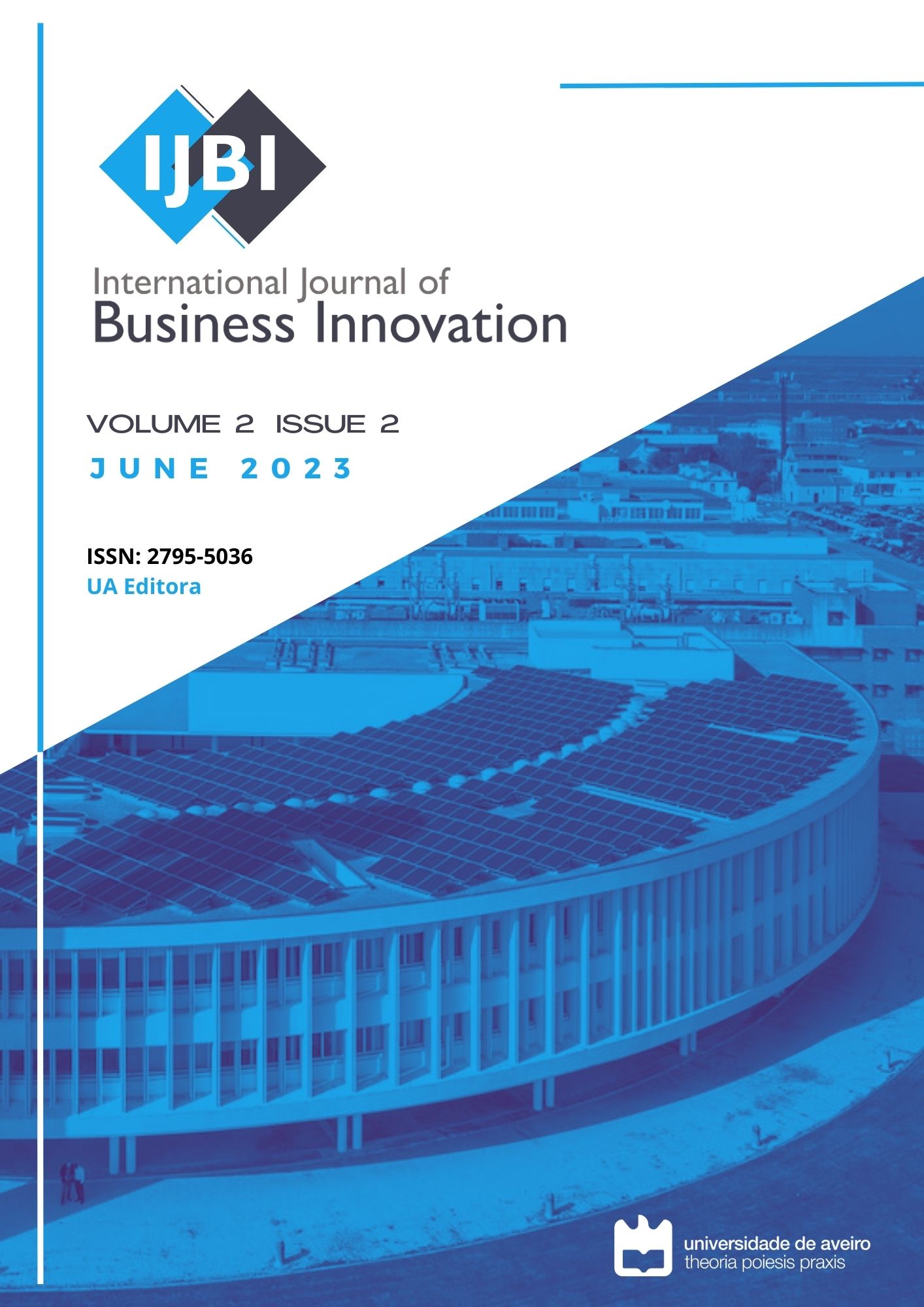Editorial
Keywords:
editorialAbstract
It is with satisfaction that the editorial team of IJBI - International Journal of Business Innovation presents its second issue of the second volume. Despite several articles submitted from various scientific areas, this issue, by editorial decision, concentrates articles only from the scientific area of accounting, thus allowing to provide readers from this scientific area with a collection that brings together such interesting topics, such as sustainability, reporting and technologies in Accounting.
The article titled “Board characteristics and non-financial information disclosures under Directive 2014/95/EU: Evidence from Portugal” by Cecília Carmo and Cristiana Ribeiro, contributes to the scientific literature with and index which allows to analyze the effect of the Board of Directors’ characteristics on the disclosure of non-financial information by Portuguese listed companies, in the context of the Directive 2014/95/EU. The results show which board characteristics positively affect the disclosure of information.
The second article, titled "Motivations for Sustainability Reporting: A Case Study in a Textile Company", continues the theme of disclosure of information, within the scope of corporate sustainability. The authors, Amélia Pires and Fernando Rodrigues, conducted research with the aim of finding out what leads companies to disclose in the context of sustainability and how they do it. Through a literature review and a case study in the textile sector, the authors concluded that there is a greater tendency for disclosure in larger companies and/or belonging to activity sectors that are more sensitive to social and environmental issues. In the specific case of the textile sector, the authors point out that disclosure is independent of the size of the company.
The article “Key Ideas and Concepts of Institutional Economic Theory: Key Ideas and Concepts of Institutional Economic Theory”, by Ninel Nesheva-Kiosseva aims to present the main key ideas, the “red markers” in institutional theory that form the theoretical basis of the applied tools of non-financial accounting. Thus, this article contributes to discover, select, highlight and systematize, in problem-chronological terms, the main and most important theoretical components of the conceptual and methodological change in institutional economic theory that have contributed to the creation of the tools called general "non-financial accounting and reporting". Overall, the study tries to throw the bridge between economic theory and the new directions of non-financial reporting.
Finally, the article “The impact of new technologies on the accounting profession:A Bibliometric Review”, by Célia Santos, Graça Azevedo and Rui Pedro Marques, analyzes the scientific production on the impact of new technologies, such as blockchain, big data and artificial intelligence, on the professional day-to-day of accountants. The study focuses on the analysis of 71 papers, published between 1986 and 2022 in several journals, indexed in Scopus, contributing to a better understanding of the evolution of the theme, as well as providing research clues in this emerging topic.
In addition to the acknowledgment to the authors of all the submissions, we also thank to the reviewers who agreed to collaborate with us in the important task of evaluating the articles received.
Thank you for your interest in the IJBI.
References
Downloads
Published
Issue
Section
License
When submitting an article to the IJBI, authors certify the following clauses:
-
Originality and single submission– The contents presented in the article have not been published previously in whole or in part, and were not submitted or are not under active consideration elsewhere prior IJBI decision. The article must be authentic and does not contain plagiarism.
-
Authorship– All authors reviewed the article, agreed with its content, and agreed to its submission to the IJBI.
-
Conflicts of interest– Any conflict of interests must be declared. If authors have no declaration, it should be written (in the acknowledgments section): “The authors declare no conflict of interests”.
-
Ethics committee and informed consent(if applicable) – The research must be approved by an independent ethics committee and subjects gave their informed consent before they were enrolled in the study.
- Authors retain copyright and grant the journal the right of first publication with the work simultaneously licensed under a Creative Commons CC BY 4.0.



